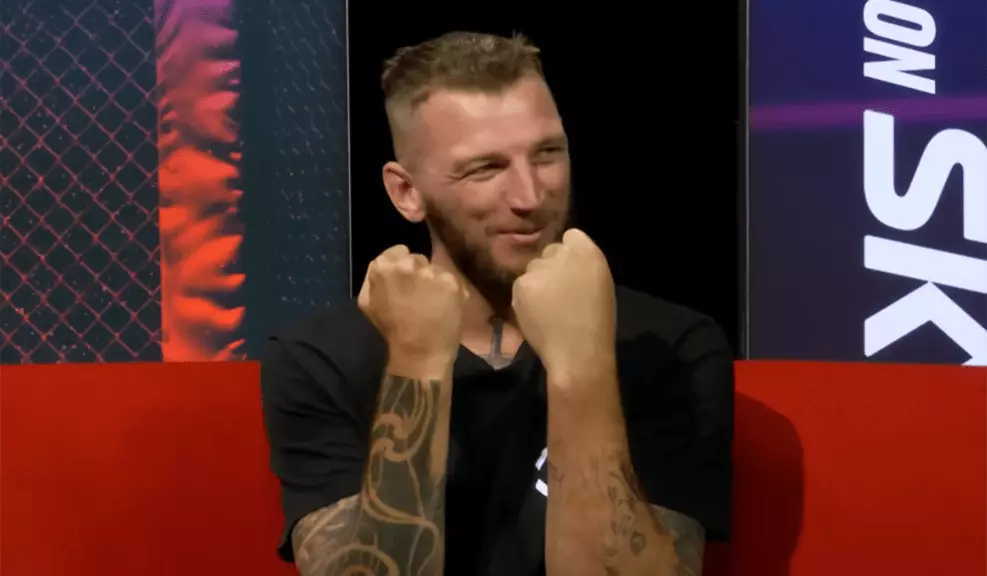In the world of mixed martial arts (MMA), injuries are frequently part of the game, yet the disappointment they bring can be immense. Dan Hooker, a prominent name in the lightweight division, found himself facing an unfortunate turn of events leading up to UFC 313. Scheduled to engage in a high-stakes bout against former interim champion Justin Gaethje, Hooker sustained a hand injury during training that forced him to withdraw just days before the event. Hooker’s inability to compete not only affects him personally but ripples through the entire UFC community, leaving fans and analysts alike deeply disappointed.
In a candid conversation with Sky Sport New Zealand, Hooker elaborated on the circumstances surrounding his injury. While sparring, he inadvertently struck another fighter on the head with his knuckle, which resulted in significant swelling and ultimately a diagnosis of a fractured hand. “One of the paws is not doing too well,” Hooker remarked with a stoic sense of humor, underscoring the reality of the fighter’s mentality. Even as he expressed his willingness to step into the Octagon regardless of the injury, the practicalities of medical examinations and the inherent risks of competing injured left him conflicted.
This incident exemplifies a larger issue in professional sports: the tension between a fighter’s desire to compete and the need for their health and safety. Hooker’s statement about being “gutted for all the fans” highlights the emotional toll that withdrawal can have, extending beyond personal disappointment to a collective letdown for supporters who anticipated an exhilarating showdown.
The stakes of the upcoming fight were extraordinarily high, as both fighters were deeply entrenched in their careers at pivotal moments. Hooker, riding a three-fight winning streak, appeared poised for a significant victory over Gaethje, potentially elevating his status within the division. The loss of this fight represents more than just a missed opportunity for the fighter; it also disrupts the competitive landscape of the lightweight division. Matchmaking gets complicated, and the energy surrounding the anticipated face-off dissipates as fans are left speculating about what could have been.
Moreover, Hooker’s frustration only intensifies when considering the commitment and preparation that goes into each fight. The grueling training camps, the mental preparation, and the sacrifice come crashing down in an instant due to an unpredictable accident. The emotional complexity of such experiences poses ongoing questions about the price fighters pay for their passion, as well as the ramifications for their careers.
As Hooker contemplates his next steps following this setback, one cannot help but reflect on the resilience that defines a successful athlete. While UFC 313 might be out of reach, the potential for future matchups remains. With ongoing medical assessment and an emphasis on recovery, fans will undoubtedly be eagerly waiting for updates regarding Hooker’s return to the Octagon. The landscape of MMA is always shifting, and it is ultimately the fighters like Hooker, who navigate these challenges with grit and determination, that will continue to fuel the heart of the sport.

